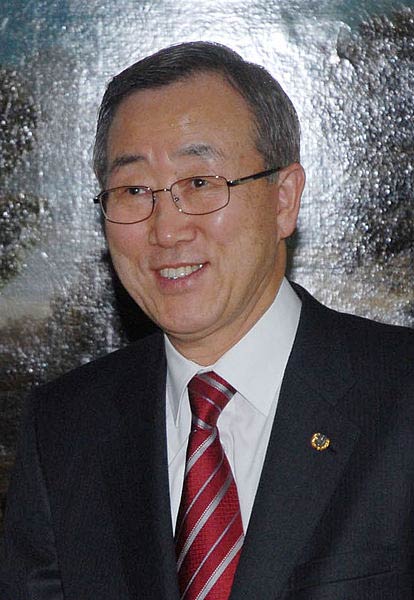U.N. Chief Tells World: We Need a Green New Deal
By Gabriela Baczynska and Megan Rowling | Дек 13, 2008

The world must avoid backsliding in fighting global warming and work out a “Green New Deal” to fix its twin climate and economic crises, U.N. Secretary-General Ban Ki-moon said on Thursday.
“We must re-commit ourselves to the urgency of our cause,” Ban told a December 1-12 meeting of 100 environment ministers in Poznan, Poland, reviewing progress toward a new U.N. climate treaty meant to be agreed at the end of 2009.
“The financial crisis cannot be an excuse for inaction or for backsliding on your commitments,” he told ministers. The climate crisis “affects our potential prosperity and peoples’ lives, both now and far into the future.”
Ban called for leadership from U.S. President-elect Barack Obama and from the European Union. An EU summit ending on Friday will try to break deadlock in the bloc over a plan to cut greenhouse gas emissions by a fifth by 2020, compared to 1990.
And Ban called for a modern, global environmental equivalent of U.S. President Franklin Roosevelt’s 1930s “New Deal,” which lifted the United States out of the Great Depression.
“We need a Green New Deal,” Ban declared.
Coping with the financial crisis would need a “massive stimulus,” he added. “A big part of that spending should be an investment — an investment in a green future.”
The U.N. Climate Panel says global warming from greenhouse gases, mainly generated from burning fossil fuels, will cause more floods, droughts, heatwaves and rising seas.
The Poznan talks are the halfway mark of a two-year push to work out a global pact to succeed the Kyoto Protocol, the U.N. pact binding 37 nations to reduce emissions by about 5 percent below 1990 levels by 2008-2012.
Ban also said he was considering calling a summit of world leaders in New York in September 2009 to give impetus to climate talks due to end at a conference in Copenhagen in a year’s time.
LEADERSHIP
John Kerry, designated head of the U.S. Senate Foreign Relations Committee, said Obama would invest heavily in renewable energies and “green jobs” to help end the recession.
“President Obama will be like night and day compared to President Bush,” he told reporters of Obama’s climate policies.
Obama wants to cut U.S. emissions, now running 17 percent above 1990 levels, back to those levels by 2020. Bush rejected the Kyoto Protocol and his laxer policies would allow U.S. emissions to keep rising until 2025.
Kerry said it was “absolutely essential” that China, which has overtaken the United States as the world’s top carbon dioxide emitter, gets more involved in combating global warming to win U.S. endorsement of any new treaty.
But developing nations, led by China and India, insist that rich nations should first make deep cuts.
Details of a new Adaptation Fund to help poor countries adjust to the impacts of rising seas, droughts, floods and heatwaves were among the most contentious remaining issues.
Tuvalu’s Prime Minister Apisai Ielemia, whose Pacific island nation is at risk from rising seas, accused some rich countries of “burying us in red tape” to deny access to the fund.
“We are not contemplating migration … we will survive,” Ielemia said to applause from delegates. The Adaptation Fund could reach $300 million a year by 2012 to help countries build coastal defenses or develop drought-resistant crops.
The U.N. Climate Change Secretariat said the Polish talks had achieved the modest goals of agreeing a plan of work toward Copenhagen. Negotiators will hold three preparatory meetings in 2009.
“This is a blue-collar conference,” said Yvo de Boer, head of the U.N. Climate Change Secretariat. “It’s about getting a job done, it’s not about spectacles or breakthroughs.”















